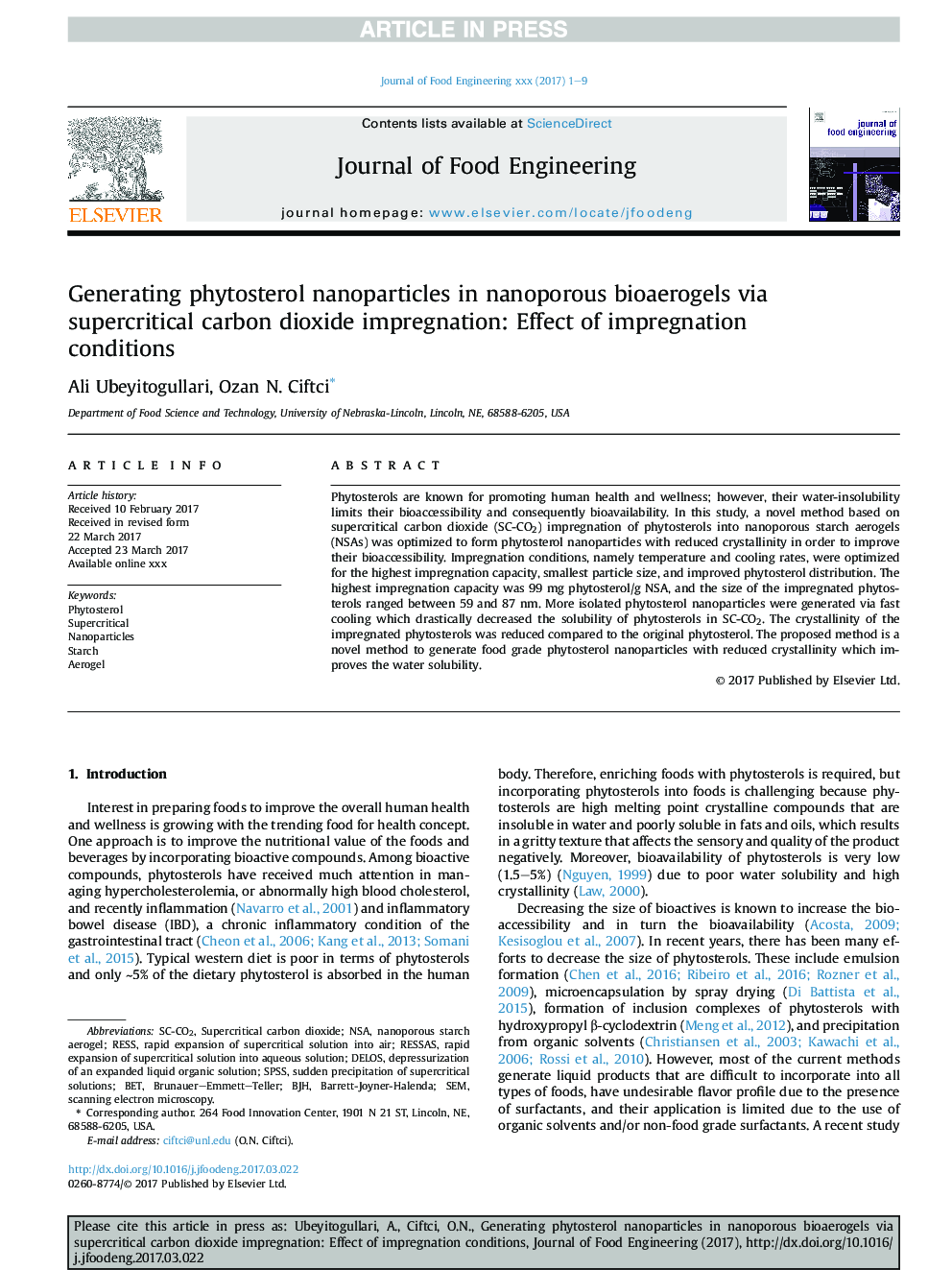| Article ID | Journal | Published Year | Pages | File Type |
|---|---|---|---|---|
| 4909119 | Journal of Food Engineering | 2017 | 9 Pages |
Abstract
Phytosterols are known for promoting human health and wellness; however, their water-insolubility limits their bioaccessibility and consequently bioavailability. In this study, a novel method based on supercritical carbon dioxide (SC-CO2) impregnation of phytosterols into nanoporous starch aerogels (NSAs) was optimized to form phytosterol nanoparticles with reduced crystallinity in order to improve their bioaccessibility. Impregnation conditions, namely temperature and cooling rates, were optimized for the highest impregnation capacity, smallest particle size, and improved phytosterol distribution. The highest impregnation capacity was 99Â mg phytosterol/g NSA, and the size of the impregnated phytosterols ranged between 59 and 87Â nm. More isolated phytosterol nanoparticles were generated via fast cooling which drastically decreased the solubility of phytosterols in SC-CO2. The crystallinity of the impregnated phytosterols was reduced compared to the original phytosterol. The proposed method is a novel method to generate food grade phytosterol nanoparticles with reduced crystallinity which improves the water solubility.
Keywords
Related Topics
Physical Sciences and Engineering
Chemical Engineering
Chemical Engineering (General)
Authors
Ali Ubeyitogullari, Ozan N. Ciftci,
